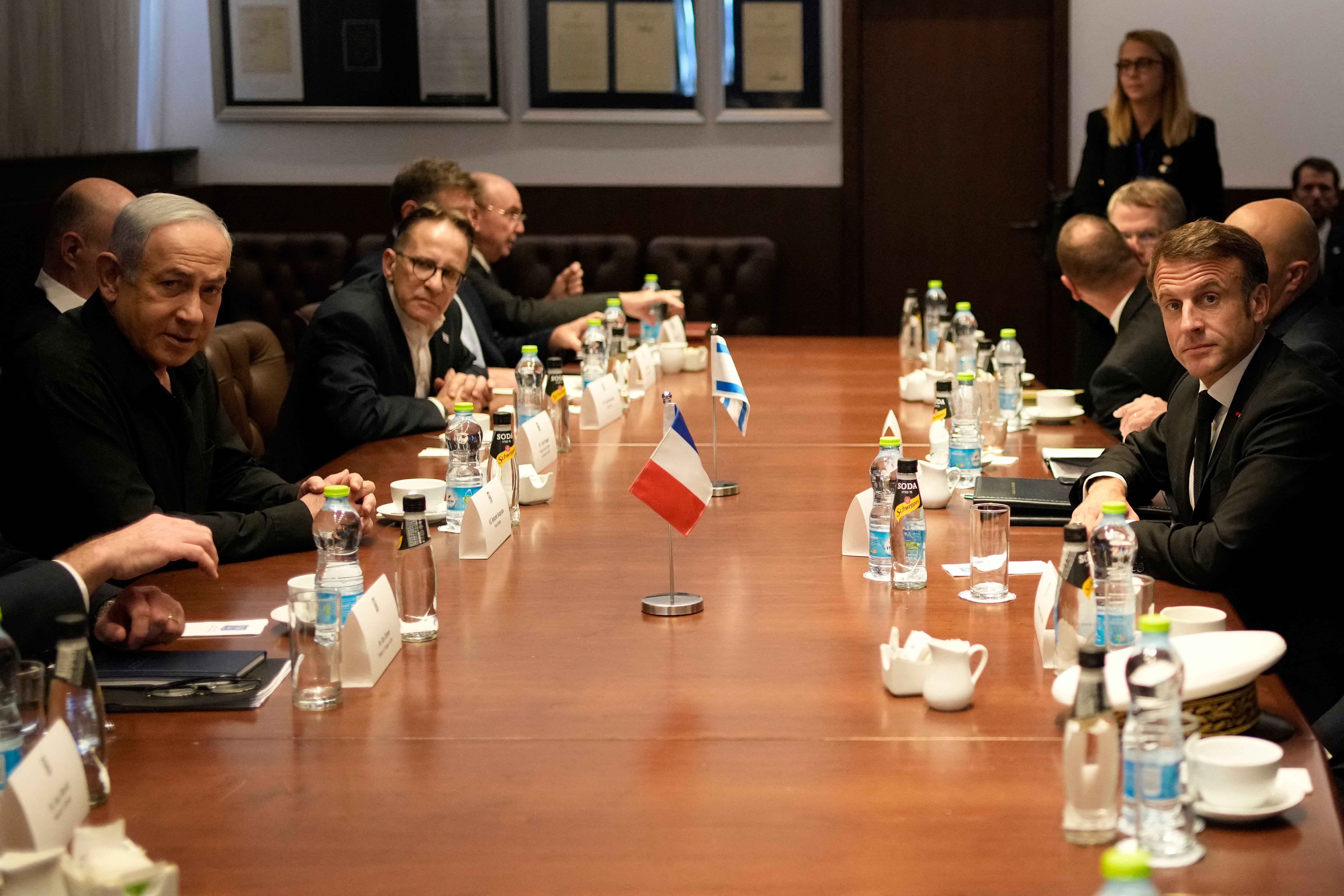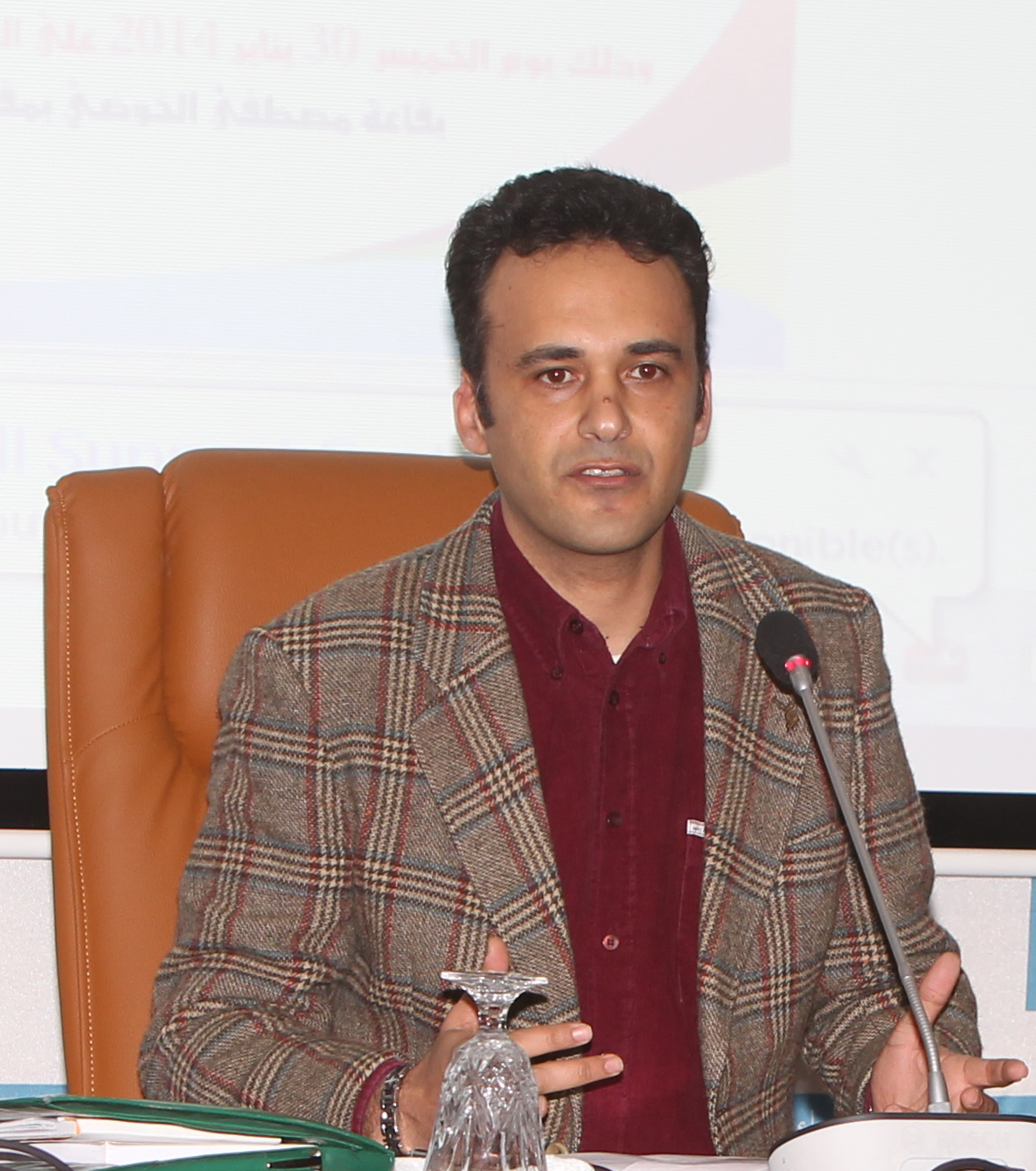"هل تدين الهجوم الإرهابي لحماس؟" بلهجة حادة على منوال الاستجواب البوليسي، تناسخ هذا السؤال الحامل لموقف متعسف، باتفاق غير معلن بين الشاشات. يستهل به المقدمون برامجهم الحوارية في القنوات الإعلامية الفرنسية، ليحدد اتجاه المنتوج الإعلامي وخطه التحريري المنحاز بشراسة غير مسبوقة.
في معظم النماذج، يلبس السؤال وجها عبوسا، ورنة حاسمة بلغة جسد متشنجة ونظرات ضاغطة واستباقية تجاه الضيوف المشتبه في أنهم خارج سرب التهليل لأطروحة "إسرائيل الضحية تدافع عن نفسها". معظم الأجوبة تساير بالفعل أجواء الشحن والتحريض لأن السيناريو محبوك. مع ذلك، لا يتسع صدر الأستوديو إلا لـ "نعم" قاطعة وناجزة، وحبذا لو صاحبتها عبارات الوصم بالبربرية والوحشية في حق من نفذ هجوم 7 أكتوبر... أما "نعم أدين" التي يتبعها سعي –ولو كان محتشما- لوضع الحدث في سياق جيوسياسي أو تاريخي ما فتحكم على صاحبها بغضب عارم، فيُقاطَع ويُحشَر في زاوية تبرير "الفعل الإرهابي"، وقد ينتهي به الأمر ليُصنّف ضمن دعاة "معاداة السامية". التاريخ يبدأ يوم هجوم كتائب القسام، والضحية واحدة: إسرائيل. ثمة سيناريو مكتوب للموقف المطلوب مما يجري، ومخرج الفيلم لا يقبل التصرف إلا إن كان من باب المزايدة في دعم إسرائيل وتجريم المقاومة الفلسطينية.
شهدت وسائل التواصل الاجتماعي في فرنسا انفجارا غير معتاد على خلفية وصلة فكاهية أنجزها الكوميدي الفرنسي الشاب من أصل مغاربي مليك بنطلحة وفريقه. يتعلق الأمر بباروديا (نوع من التقمص أو التقليد) سخرت من أجواء الأستوديو الحواري الذي يقدمه باسكال برو على قناة CNEWS، وعكست بإتقان لغوي وحركي القالب الموجه وأحادي الجانب في إدارة الحوارات، سواء في خدمة أطروحات اليمين المتشدد من حيث مواضيع الإسلام والهجرة، أو حديثا تجاه عدوان غزة. ملايين من المشاهدات وآلاف التعليقات تفاعلت مع الوصلة الساخرة التي زكَّت وعيا عاما بهذه الصناعة الإعلامية المخدومة التي تهين أخلاقيات العمل الإعلامي وتضرب تعدديته.
انتفض دوفيلبان، رئيس الوزراء الفرنسي السابق، بقوة على "التحكم" المالي غير المسبوق في دواليب الإعلام والثقافة الفرنسيين، فكان من نصيبه إدانة جاهزة بمعاداة السامية التي تقرن اليهود بالسيطرة المالية.
دومينيك دو فيلبان نفسه، وزير الخارجية ورئيس الحكومة السابق والأديب المعروف بفكره الإنساني، واجه بثبات سلطوية المقدم باسكال برو الذي فضحه تسريب مصور من كواليس إحدى الحلقات وهو يوبخ ضيفا لأنه يساند الفلسطينيين "أكثر من اللازم". حتى إن ضيفا آخر تدخل لتهدئة غضب المقدم المتغطرس كما لو أنه ينفي عن الرجل تهمة جنائية: "لا إنه يتفهمهم فقط". انتفض دوفيلبان بقوة على "التحكم" المالي غير المسبوق في دواليب الإعلام والثقافة الفرنسيين، فكان من نصيبه إدانة جاهزة بمعاداة السامية التي تقرن اليهود بالسيطرة المالية. والمصير نفسه طال الزعيم اليساري لحركة "فرنسا الأبية" جان لوك ميلانشان الذي تعرض لحملة شيطنة طاحنة فقط لأنه طالب بوقف المجازر وحاول التنبيه إلى وجود سردية أخرى غير ما يُدوَّن في المطبخ الداخلي للسياسة الإعلامية الموجهة.
في هذا "الكورال" الإعلامي الذي يعزف لحنا واحدا بالكاد بدأ يتسع لأصوات مغايرة قليلة بعد أسابيع من قصف المدنيين والتدمير الممنهج، ينبثق ضوء خافت لكنه صامد من "ميديابارت"؛ الموقع الاستقصائي الذي يديره الصحفي إيدوي بلينيل، والذي رأى أن "التفرُّج" على مجزرة غزة "جريمة" وأن ازدواجية المعايير بين مساندة الأوكرانيين والوقوف ضد الفلسطينيين سلوك يدين فرنسا والغرب، وأن عدم مطالبة فرنسا بوقف إطلاق النار "عار". لكنه أبعد من ذلك، انضم إلى دوفيلبان في التنديد بقانون الصمت (الأوميرتا) المفروض على المشهد الإعلامي، وتكريس حالة استثناء يتسيَّدُها الصوت الواحد وتنتفي فيها قيم التعددية والجدل المفتوح، التي تعدّ مؤشرا حاسما على صحة الديموقراطية ومصداقيتها.
كانت السقطة الإعلامية الفرنسية فادحة وفتحت أعين المراقبين على ذلك الاحتمال المذهل والمتربص لانجراف الحالة الديموقراطية نحو خطاب منمَّط أحادي يفرضه تحالف غير معلن بين الرأسمال والأيديولوجيا اليمينية.
إن السقطة الإعلامية الفرنسية في اختبار تغطية حدث بحجم حرب غزة بأبعاده الاستقطابية وتعدد زوايا مقاربته ليست إلا شاشة كبرى تضخم فيها مفعول الخلل البنيوي في المشهد الإعلامي الفرنسي والغربي بشكل عام، وبخاصة ما يهم النموذج الاقتصادي للمؤسسات الإعلامية ودينامية التركيز الرأسمالي التي ابتلعت مساحات الإنتاج الإعلامي الحر المعبر عن حقائق المجتمع وتوازنات النسيج الاجتماعي والسياسي والثقافي.
يلحظ الخبير في الاتصال ورئيس التحرير السابق لصحيفة "لوموند ديبلوماتيك" إغناسيو راموني أن الصحافة الفرنسية باتت بيد مجموعة محدودة من الأباطرة الأوليغارشيين: لاغاردير، بينو، أرنو، داسو... لتصبح وسائل الاعلام أقل تعبيرا عن التعددية وأكثر نزوعا نحو حماية مصالح المجموعات المالية والصناعية الكبرى التي تنتمي إليها ومن ثم الخيارات السياسية اللصيقة بها. ويتحدث راموني كذلك عن أزمة السلطة الرابعة التي تبتعد عن مهمتها التاريخية المتمثلة في خلق رأي عام ذي روح نقدية يشارك بنشاط في النقاش الديموقراطي. على العكس، يصب التوجه الحالي نحو تدجين المجتمع لتفادي المس بالنموذج المهيمن.
إن ظاهرة التركيز الإعلامي باتت خطيرة بالنسبة للممارسة المهنية؛ إذ أنجزت "مراسلون بلا حدود" قبل سنوات دراسة أعدتها خبيرة اقتصاد الإعلام جوليا كاجي تكشف مخاطر تركيز وسائل الإعلام في فرنسا بيد بعض رجال الأعمال (مليارديرات).
وسجلت الدراسة أن التركيز المتنامي لقطاع الإعلام بفرنسا يخفي كثيرا من الغموض ونقص الشفافية بشأن عمليات حيازة الأسهم في المؤسسات. وخلصت الى أن 51 في المئة من المؤسسات الإعلامية بفرنسا في يد مساهمين ينحدرون من قطاع المال والتأمينات، ممن وضعوا بنيات مراقبة معقدة تجعل من الصعب تحديد المساهم النهائي.
وتتعاظم آفة التركيز حين تتضافر سيطرة المال مع الانتماء إلى معسكر يميني محافظ يتبنى الأطروحة الإسرائيلية بقدر ما يعادي المسلمين والمهاجرين، باسم الدفاع عن الجمهورية.
51 في المئة من المؤسسات الإعلامية بفرنسا في يد مساهمين ينحدرون من قطاع المال والتأمينات، ممن وضعوا بنيات مراقبة معقدة تجعل من الصعب تحديد المساهم النهائي.
وتسارعت دينامية التركيز في فرنسا منذ بداية العقد الثاني من الألفية، حتى إن عشرة ميليارديرات أصبحوا يملكون معظم المؤسسات الصحفية في البلاد، منهم ثلاثة من عمالقة الصناعات الحربية: داسو (لوفيغارو) ولاغاردير (RFM، Europe1، باري ماتش) وبويغ (TF1، LCI)، والملياردير فانسان بولوري رجل المصالح الاقتصادية الفرنسية في الخارج الذي سيطر على كنال بلوس وCnews وغيرهما، حتى باتت استثناءات قليلة تصنع الاستقلالية في المشهد الفرنسي، منها مؤسسة ميديابارت. وهو واقع حمل كثيرا من المثقفين الفرنسيين على التحذير من تأثير التركيز وامتداداته من خلال الرقابة والرقابة الذاتية ومخاطر تعميق الانحدار نحو حالة انكماش ديموقراطي.
لقد كانت السقطة الإعلامية الفرنسية فادحة وفتحت أعين المراقبين على ذلك الاحتمال المذهل والمتربص لانجراف الحالة الديموقراطية نحو خطاب منمَّط أحادي يفرضه تحالف غير معلن بين الرأسمال والأيديولوجيا اليمينية. ورغم كل الأسئلة والالتباسات المحيطة بمفعولها، تظل وسائط التواصل الاجتماعي في سياق من هذا القبيل موئلا حيويا من أجل إحداث ثغرات في جدار الصمت ومساحات -ولو في الهامش- تنبت فيها سرديات بديلة.


















![Palestinian journalists attempt to connect to the internet using their phones in Rafah on the southern Gaza Strip. [Said Khatib/AFP]](/sites/default/files/ajr/2025/34962UB-highres-1705225575%20Large.jpeg)





















